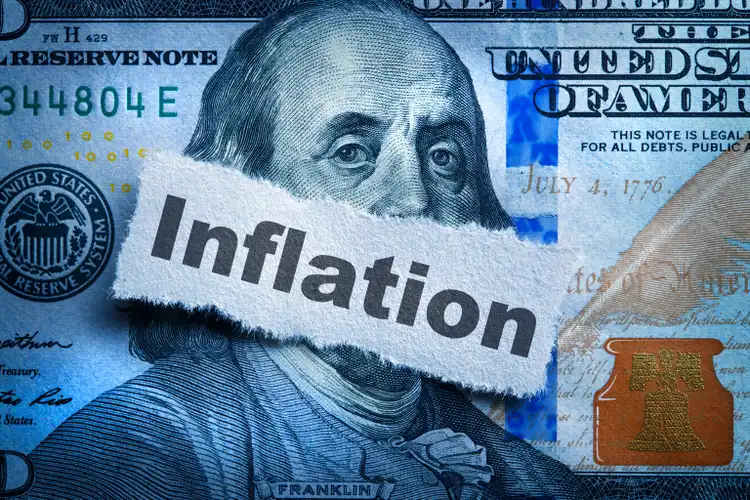U.S. Inflation Hits Three-Year Low
U.S. inflation slowed for the second time in August 2024, reaching a three-year low of 2.5%, a development that could ease the Federal Reserve’s decision to cut interest rates.
According to the U.S. Labor Department, consumer prices dropped from 2.9% in July to 2.5% in August, bringing inflation closer to the Fed’s target.
Join our WhatsApp ChannelThis decline has raised expectations that the Federal Reserve might make its first interest rate cut in over four years next week.
Month-on-Month U.S. Inflation Still Rising
Though U.S. inflation dropped significantly year-on-year, it is worth noting that on a month-to-month basis, consumer prices rose by 0.2% in August, compared to 0.3% in July.
This rise highlights that while inflation is cooling, some sectors are still seeing price increases, particularly in housing.
“U.S. inflation is slowing, but some categories like housing costs remain stubbornly high,” said James Reynolds, an economist based in New York.
READ ALSO:Inflation, Policy Dislocation And Nigerian Govt’s 30-day Price Ultimatum To Traders
He noted that “the Federal Reserve’s goal of controlling inflation is moving in the right direction, but they’re still keeping an eye on persistent areas of price pressure.”
Federal Reserve Prepares for Rate Cut
Federal Reserve officials are widely expected to make a crucial decision on interest rates in the coming days. The recent inflation data, now within the Fed’s 2% target range, strengthens the case for a rate cut.
In a recent Jackson Hole symposium, Federal Reserve Chair Jerome Powell hinted at the possibility of easing monetary policy, which could lower borrowing costs in the U.S. and encourage investment.
“The recent inflation numbers are giving the Federal Reserve the breathing room it needs,” said economic analyst Julia Gomez. “We’re likely looking at a rate cut very soon.”
Impacts on Emerging Markets: Capital Inflows Expected
A Federal Reserve rate cut would not only affect the U.S. economy but also have significant implications for emerging markets, particularly in Africa.
Analysts predict that countries like Nigeria could see an influx of foreign capital as lower interest rates in the U.S. make borrowing cheaper for investors seeking higher returns abroad.
“Nigeria’s carry trade is very appealing at the moment, one of the highest in Africa,” said Samuel Gbadebo, a fixed-income analyst at CardinalStone.
“A rate cut by the U.S. Fed is likely to support capital flows to emerging and frontier markets, which Nigeria will certainly benefit from.”
Positive Outlook for Nigeria’s Economy
The potential for capital inflows into Nigeria is seen as a major boost for the country’s financial markets, which have been struggling with a shortage of foreign exchange.
A decrease in U.S. interest rates would encourage investors to borrow at lower rates in the U.S. and invest in higher-yielding markets like Nigeria.
“It will be cheaper for foreign investors to borrow funds in the U.S. and invest in Nigeria, and that way, it’s positive for Nigeria through capital inflow,” noted Matilda Adefalujo, a fixed-income analyst at Meristem Securities.
She added that with the rate cut, Nigeria’s economy could see an increase in foreign investment, which would strengthen the naira and improve liquidity in the financial system.
A Turning Point for Global Markets
The decline in U.S. inflation and the anticipated Federal Reserve rate cut mark a significant shift in global economic trends.
While inflation remains a concern in specific sectors, the overall cooling of prices is likely to have wide-reaching effects, from making U.S. borrowing more affordable to driving capital flows into emerging markets.
Nigeria, in particular, stands to benefit as foreign investors look for high-yield opportunities.
“The potential for capital inflows into Nigeria cannot be underestimated,” said Gbadebo. “This is a turning point for both the U.S. and emerging markets.”
Emmanuel Ochayi is a journalist. He is a graduate of the University of Lagos, School of first choice and the nations pride. Emmanuel is keen on exploring writing angles in different areas, including Business, climate change, politics, Education, and others.
- Emmanuel Ochayihttps://www.primebusiness.africa/author/ochayi/
- Emmanuel Ochayihttps://www.primebusiness.africa/author/ochayi/
- Emmanuel Ochayihttps://www.primebusiness.africa/author/ochayi/
- Emmanuel Ochayihttps://www.primebusiness.africa/author/ochayi/

















Follow Us